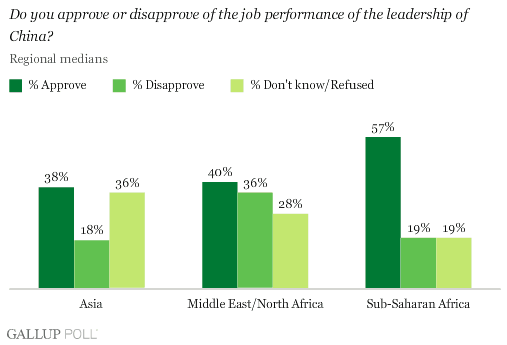![]() A guaranteed way to bait someone into a contentious discussion in Nairobi is to ask for their opinion on the value of China’s activities in Africa and how the massive investment in infrastructure and buildings has and will contribute to the development of the continent. Most are quick to dismiss the role of foreign aid in development, accusing the West of possessing ulterior strategic motives and exacerbating the problems by distorting the market for goods and services and propping up corrupt and unaccountable governments. But many also believe that China’s approach to securing land and natural resources in exchange for building roads and hospitals is bad for the countries in the long-run. They cite the poor quality of work and even accuse the Chinese of emptying their prisons and sending their criminals to work on infrastructure projects in exchange for their freedom and a guarantee that they will never return to China. This is hearsay, of course, and may well be false.
A guaranteed way to bait someone into a contentious discussion in Nairobi is to ask for their opinion on the value of China’s activities in Africa and how the massive investment in infrastructure and buildings has and will contribute to the development of the continent. Most are quick to dismiss the role of foreign aid in development, accusing the West of possessing ulterior strategic motives and exacerbating the problems by distorting the market for goods and services and propping up corrupt and unaccountable governments. But many also believe that China’s approach to securing land and natural resources in exchange for building roads and hospitals is bad for the countries in the long-run. They cite the poor quality of work and even accuse the Chinese of emptying their prisons and sending their criminals to work on infrastructure projects in exchange for their freedom and a guarantee that they will never return to China. This is hearsay, of course, and may well be false.

Other people – businesspeople and educated Africans – praise the Chinese for investing in Africa. They cite the sheer volume of foreign direct investment and China’s method of holding the money in escrow until it is released for Chinese construction firms to quickly and efficiently complete the projects. When you press these people about China’s “no questions asked” policy when it comes to dealing with autocratic and repressive governments, or the no-bid contracts given to Chinese state-owned construction firms, or the lopsided deals heavily weighted toward China, they understand that you have to take the good with the bad. Africa might be getting a raw deal now, but wait a few decades until the economic returns of investments today give the continent a position of leverage and the tables might just turn, they say. The other day I had drinks with an editor from the Nation Media Group, a Kenyan media conglomerate that publishes the Daily Nation and the East African. After sustaining a drubbing as a stand-in for my country, I asked how she felt about the Chinese. “I think what they’ve done for the continent is remarkable,” she said.
As it turns out, she isn’t the only one who thinks that. In fact, most of Africa and Latin America are pretty happy with China, considering them a move valuable partner in development than the United States. Or maybe these countries just have long memories and haven’t forgotten the fact that the U.S. catalyzed the coup against the first leader of independent Ghana and father of pan-Africanism, Kwame Nkrumah, or propped up Mobutu Sese Seko in the Congo and other dictators during the Cold War, or that the CIA trained military dictators how to overthrow the leftist governments in power, also during the Cold War. Either way, much of the developed world seems to prefer China’s approach to foreign policy, geopolitical relations, and trade to that of the United States.
This chart is from the 2007, so it may be a bit dated. But, given that China’s foreign direct investment in Africa has increased substantially since the data was published, I can’t imagine the opinions have changed much. Below are a few more instructive graphs show the perceptions of China by other countries around the world and other interesting charts.


(H/T Dani Rodrik)
The basic issue is _what_ China imports in and what exports from other countries. This is a main question to answer about vectors of its economy development and strategies.